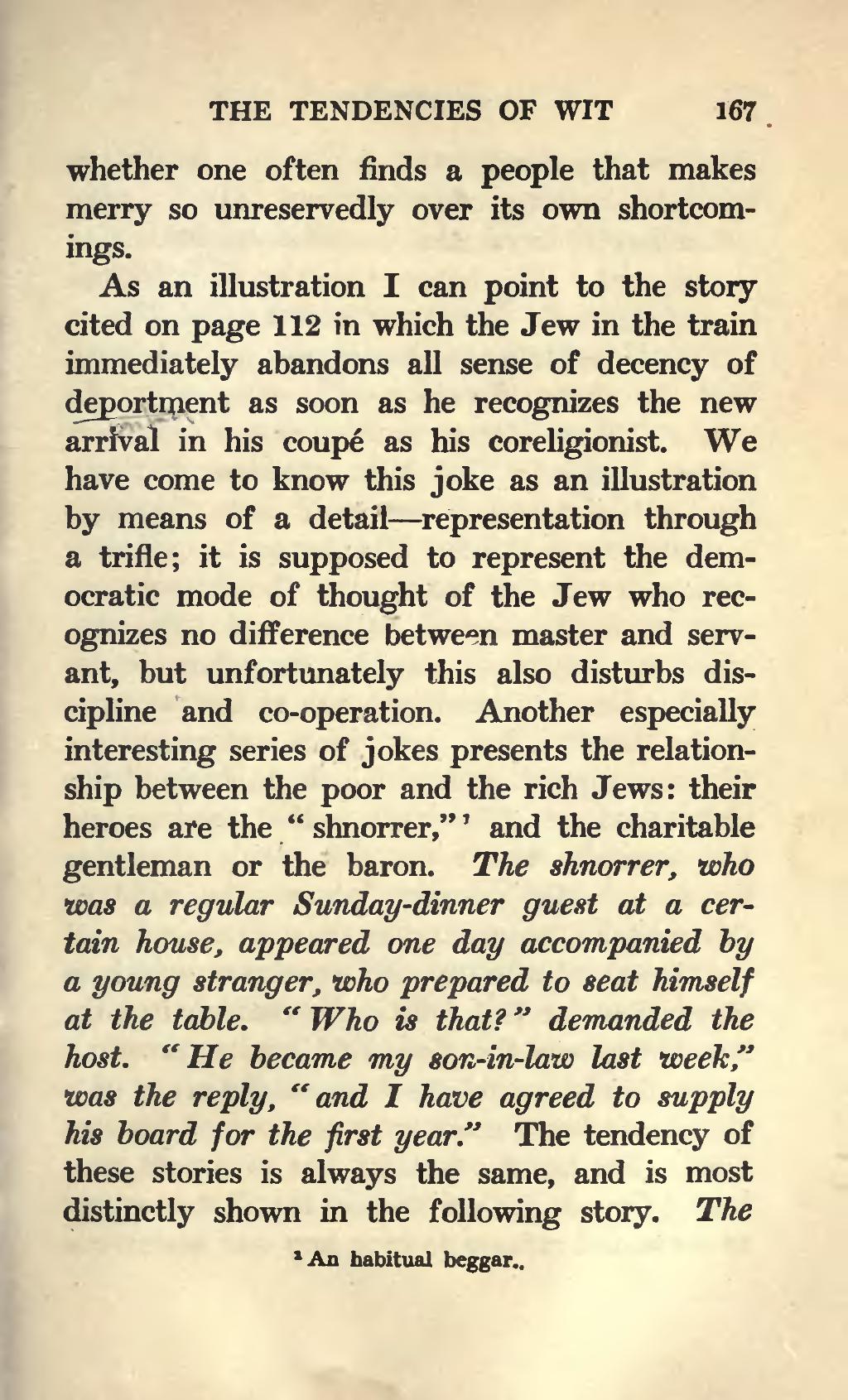one often finds a people that makes merry so unreservedly over its own shortcomings.
As an illustration I can point to the story cited on page 112 in which the Jew in the train immediately abandons all sense of decency of deportment as soon as he recognizes the new arrival in his coupé as his coreligionist. We have come to know this joke as an illustration by means of a detail—representation through a trifle; it is supposed to represent the democratic mode of thought of the Jew who recognizes no difference between master and servant, but unfortunately this also disturbs discipline and co-operation. Another especially interesting series of jokes presents the relationship between the poor and the rich Jews: their heroes are the “shnorrer,”[1] and the charitable gentleman or the baron. The shnorrer, who was a regular Sunday-dinner guest at a certain house, appeared one day accompanied by a young stranger, who prepared to seat himself at the table. “Who is that?” demanded the host. “He became my son-in-law last week,” was the reply, “and I have agreed to supply his board for the first year.” The tendency of these stories is always the same, and is most distinctly shown in the following story. The shnorrer
- ↑ An habitual beggar.
